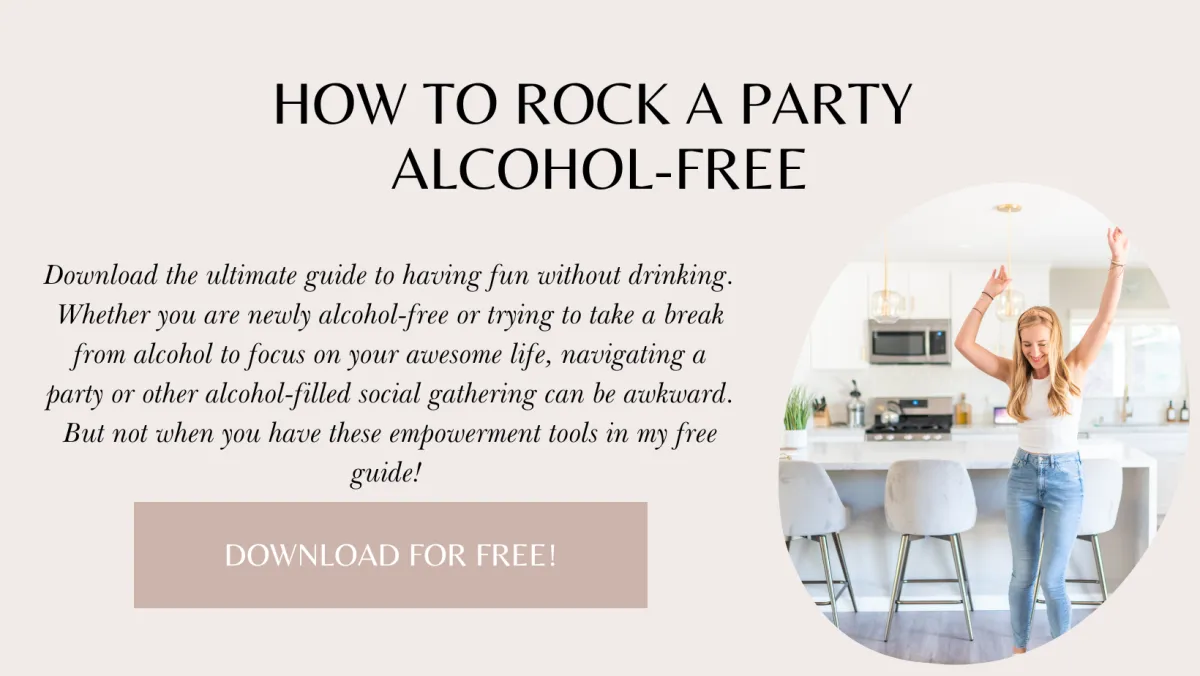Episode 80: Facing Trauma with Amy Guerrero

Do you think trauma only refers to catastrophic events? Have you ever wondered why you fight back or emotionally shut down? Do you struggle with perfectionism or use alcohol to numb out both pain and joy?
Danielle sits down with Amy Guerrero, a Trauma Informed Recovery Life Coach who shares the resilient power of our nervous system to keep us safe. Learn about trauma responses, your nervous system, and the beautiful role of safety in healing.
This episode will help you understand your body's resilience, trust your intuition, and step into healing with compassion and curiosity.
Trauma-informed recovery starts with the body
What is trauma? Most people view trauma as catastrophic life events, like experiencing the aftermath of a hurricane or getting assaulted. Experts refer to these as Big ‘T’ trauma. But there’s another form of trauma known as Little ‘t’ trauma. Little ‘t’ trauma is more widespread - it is the day to day struggles people face, like poverty, verbal abuse, emotional neglect, long term illness, or living in an unsafe environment.
Our bodies store traumatic experiences. Have you ever had someone confront you about something and you completely shut down, or maybe you became defensive? Your response is a survival technique and when you feel unsafe, your body defaults to those coping mechanisms.
At some point, these coping methods can completely hinder your growth and prevent you from embodying your best self. Amy’s journey into recovery began because she was working through trauma and began using alcohol and drugs as a means of coping and numbing.
During her recovery journey, she realized that trauma-informed care was going to be pivotal for her healing.
Amy describes trauma-informed care as working from the body to the brain instead of the brain to the body. The process allows for looking at the whole person. Instead of pathologizing a person, there is curiosity and noticing. This approach is tender and focuses on being present with the body and self in a non-judgmental and non-shaming way.
A key to compassion and understanding your nervous system map
Danielle shares how she has a tendency to not only numb out painful feelings, but hesitates to feel joy and experience love. Even describing a recent birthday celebration with Amy gave her a knot in her stomach. It was a beautiful occasion, but she questioned everything, from how the bill was going to be paid, to whether or not her guests were enjoying themselves. This physical reaction is a trauma response.
Trauma-informed care is about rewriting old pathways, like Danielle blocking out joy. Amy calls this process “re-grooving”. Your “grooves” are your default ways of responding to experiences, your go-to thoughts, feelings, and behaviors when your nervous system feels unsafe.
Rewriting new pathways takes time. The more you understand how your nervous system works, the more compassionate you can be with yourself.
So how does our nervous system work?
Our nervous system is made up of three different states:
Dorsal is when you freeze or shut down. This is your body keeping you safe by essentially shutting off until the perceived threat is gone.
Sympathetic state is when you have a rush of adrenaline helping you to fight or flee an unsafe situation.
Ventral is the state of our nervous system that feels safe and connected.
Throughout the day, we move through these three wildly different states of being. Understanding your personal nervous system map will help leave shame and guilt on the sidelines. Instead you will have space for curiosity and observation.
Part of the recovery process is learning to notice exactly what is happening in your body, trusting your instincts, and compassionately listening to your internal voice. Especially the one that says, “keep going!”
Creating a safe space to support your healing journey
You may be surprised to hear that perfectionism is a form of trauma response. Amy’s inner child adopted this as a survival trait. If you struggle with the same thing, learn to acknowledge it and show yourself compassion in the process.
In fact, consider learning how to speak and be present with your inner child. Have you ever thanked your younger self for keeping you safe and doing everything they could to help you survive?
This is another beautiful way of looking at yourself without shame, guilt, or judgement.
So how do we show ourselves compassion?
It is only when we feel safe and connected, that we can experience compassion; this is the ventral state of our nervous system. When we are in fight or flight mode or completely shut down, our brains are physically incapable of expressing compassion. This is why safety is so important to recovery and healing.
Part of creating this safety for yourself is remembering that you have agency and control over your recovery process. As you grow in listening to your intuition and trusting yourself, you will be able to make moves in your recovery that best support your healing.
Modalities like Somatic Experiencing Therapy, EMDR, and EFT are great ways of helping the body reprocess and heal from traumatic experiences. This work creates space and safety to verbally work through trauma.
Another important piece of feeling safe is your environment. Amy explains that surrounding yourself with people who are safe and that you can be vulnerable and honest with will further support you in creating new pathways.
Everyone’s nervous system is different. Discovering how your system functions and creating a safe space for yourself are key components to healing and ultimately thriving.
“Be willing to stay curious. On the other side of curiosity is freedom. And it is going to feel weird. Your nervous system is going to tell you to stop. Can you stay curious anyway? And even finding one safe person, just one, can be a gamechanger for the whole thing.” Amy Guerrero
LINKS/RESOURCES MENTIONED
Learn more about Amy Guerrero and her Trauma Informed Recovery Life Coaching.
Learn more about Amy’s three day interactive experience, Bridge to Trust, happening August 25th-27th, 2021.
You can also find Amy on Facebook and Instagram.
Follow Euphoric Alcohol-Free on Instagram
If you’re ready to unlock a new level of amazing in your life, get curious and explore what incredible mindset shifts a break from alcohol can bring. Join the FREE 5 Day Restart to change your thinking around alcohol so you can uplevel your entire life.
And as always, rate, review, and subscribe so we can continue spreading our message far and wide.

